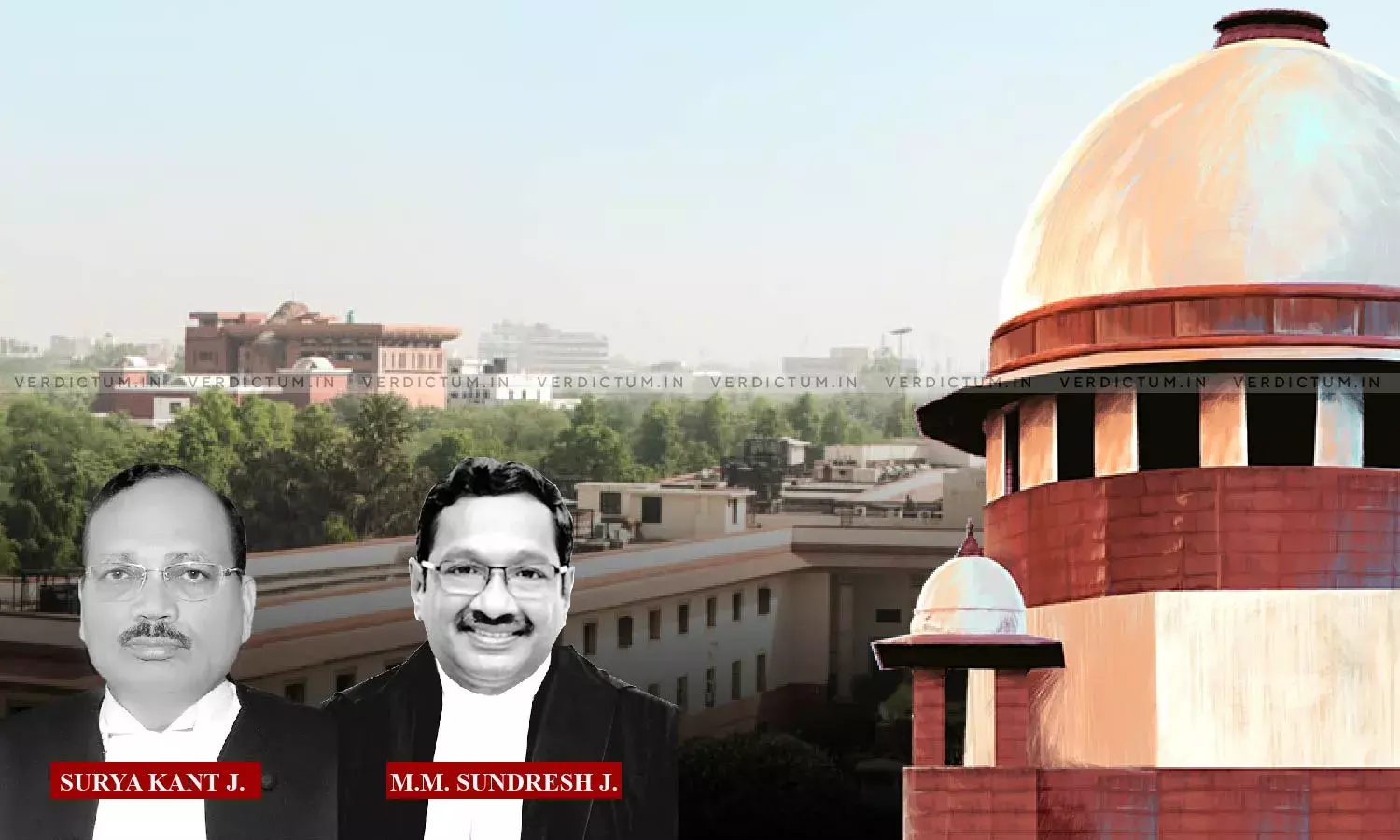Common Man Doesn't Get Benefit Of Habeas Corpus When Arrested: Argues ED As SC Refuses To Stay Madras HC's Order On Senthil Balaji
The Supreme Court has rejected the Enforcement Directorate’s plea seeking a stay on the order of the Madras High Court which had entertained a habeas corpus petition against the arrest of Tamil Nadu minister V. Senthil Balaji.
The Madras High Court while refusing to grant interim bail had allowed his plea to be shifted to a private hospital of his choice for an emergent bypass surgery.
“Since the High Court is yet to render its final opinion on the issues on maintainability of the habeas corpus petition and the exclusion of the period of treatment undergone by the detenue from the period of custody in interrogation and since both the issues are likely to be examined by the High Court on the date fixed June 22, 2023 or soon thereafter, we deem it appropriate to post the SLP for preliminary hearing on so on so date. It is clarified that the pendency of these SLPs shall not be taken as a ground to adjourn the matter”, observed a bench of Justice Surya Kant and Justice M.M. Sundresh in the matter.
The bench further noted in its order that “the observations made by the High Court in the interim order or any oral observation made by this court during the course of hearing shall have no bearing on the merits of the case”.
Solicitor General Tushar Mehta appeared for the ED and Senior Advocate Neeraj Kishan Kaul appeared for the respondent.
Mehta in the initial line of argument, while referring to the impugned order said, “These kind of orders sets a wrong precedent but I am not raising that because a common man generally doesn’t get the benefit of habeas when arrested”.
Primarily, ED sought a clarification stating that the days spent in hospital treatment by Balaji will not be counted in the 15 days period requisite for interrogation.
Kaul, appearing for the respondent, submitted that the questions are yet to be decided by the High Court. Further, he vehemently objected to the allegations made about Balaji’s health concerns while citing the alleged actual necessity.
Mehta further contended that in a habeas petition what is to be considered is the facts at the stage when the notice is made returnable and not the date of filing. While referring to Vijay Madan Lal Chaudhary’s case, he further contended that in view of Section 19 PMLA, Section 41A CrPC does not apply.
He underlined the two questions that need to be answered by the High Court, which it had noted in its earlier order:
1. Whether the grounds raised on behalf of detenue on non compliance is factually correct.
2. Even if they are factually correct, whether it could amount to an absolute illegality.
Quoting the impugned order of the High Court, Mehta further argued, “…We entertain the petition. It is not an interim order, the court has entertained the petition on two grounds, when the remand order was passed it was after the filing of the petition and whether the safeguards under Section 41A affected the arrest or not”. He also cited the principles enunciated in Rahul Modi’s case.
“These two questions as you have read out, the High Court has formulated. And as it appears to us, the High Court has used a very guarded language. High Court is aware of the fact. So, first of all, the High Court will determine whether they are factually correct or not”, said Justice Surya Kant.
“The High Court has obliged itself to answer it in accordance with law”, Justice Surya Kant further added. “By ‘entertaining’, the High Court simply says they are issuing notice to you giving you opportunity…the word entertain should not be construed as maintainable”, the bench further said.
“Navlakha judgment is contrary to several constitutional judgments…but as I always jokingly say that Navlakha has always been lucky before the High Court as well as before this Court. He got red carpet everywhere”, said Mehta
“That is a rather unfair statement to make…”, replied Kaul while objecting to the SG's remarks. “I am on the judgment not on Navlakha”, said Mehta in response.
Mehta requested the bench to pass such directions keeping all consequences in mind. “Knowing all the circumstances, I am not spelling out”, he further urged.
Towards the end of the hearing, Mehta commented that it is heartening that now every common man would have a remedy of habeas corpus before a two judge bench. “You can raise this argument Mr. Solicitor before the High Court”, the bench said in response. While Kaul asked him to refrain from sarcasm where it is not needed.
On the earlier occasion, the Minister had alleged that notice under Section 41-A of the Criminal Procedure Code was not issued and further alleged a violation of Article 22(1) of the Constitution of India, stating that the detenu was neither informed about the ground of arrest nor permitted the right to consent a legal practitioner.
However, the same was vehemently opposed on the ground that the compliance of Sections 40, 41-A etc.. of the Criminal Procedure Code, will not arise in this case of arrest under PMLA as the same is governed by only Section 19 of the said Act. Further, that Section 19 of the Act contains the safeguards, as contained under Article 22 of the Constitution of India also.
The High Court will hear the matter tomorrow, while the Supreme Court has listed the matter for July 4, 2023.
Cause Title: Deputy Director, Director of Enforcement v. Senthil Balaji




